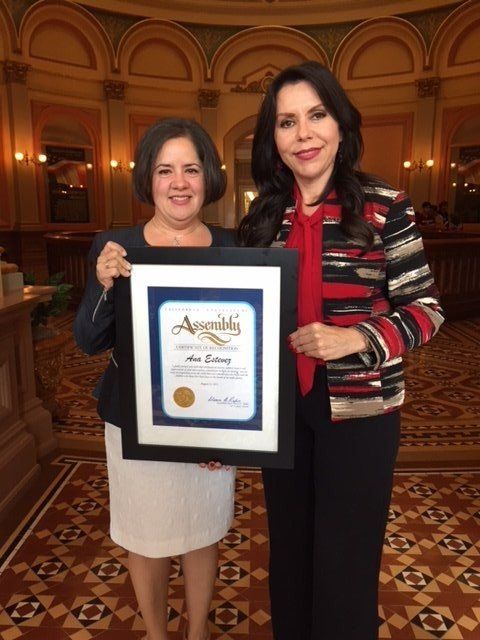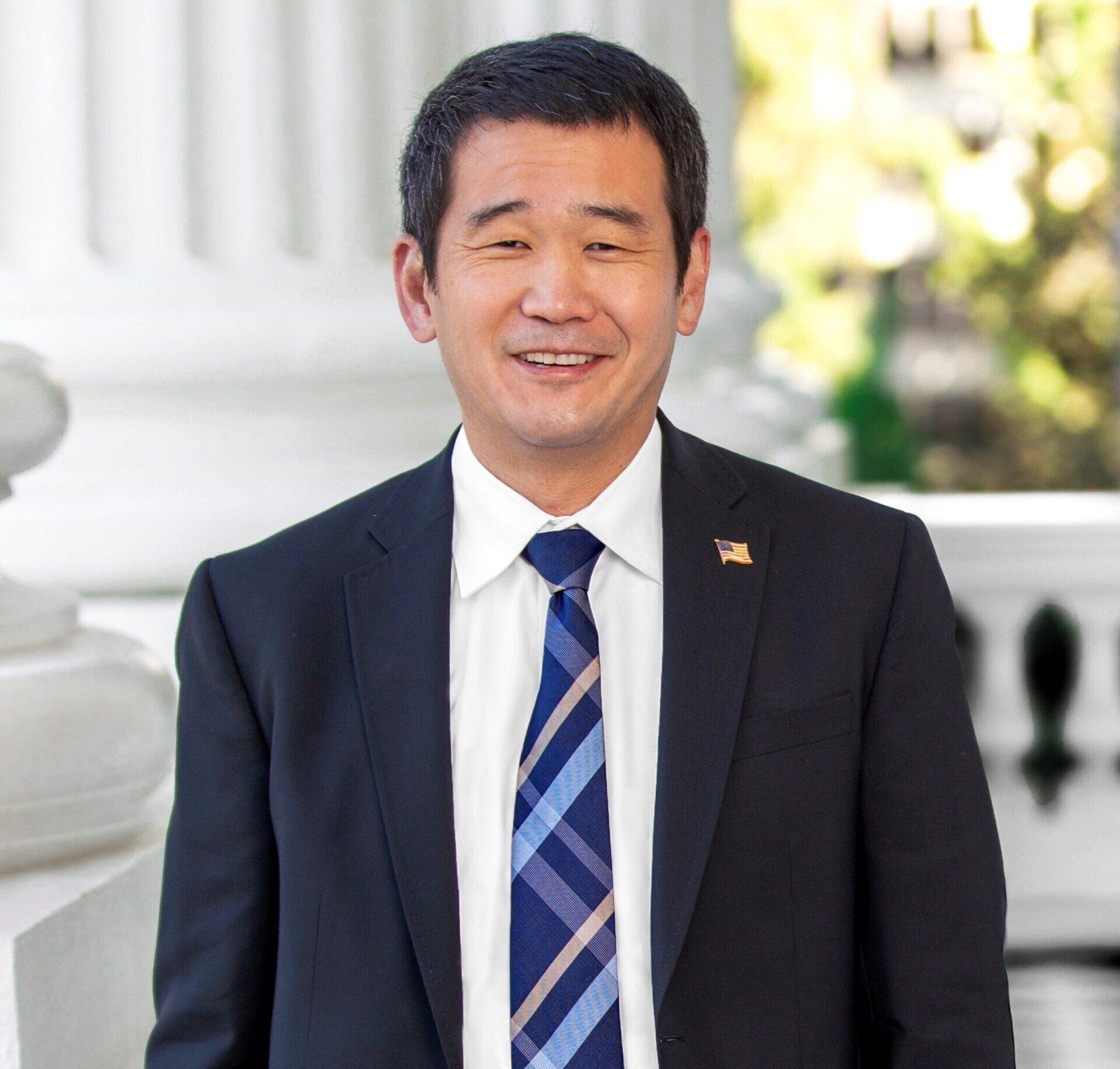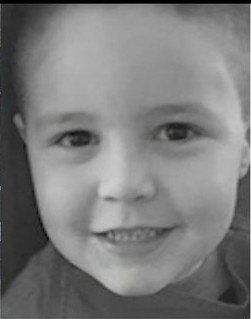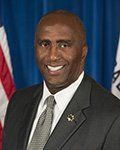CA State Legislation and Efforts
Supporting California State Child Safety
Making our CA Courts Accountable to End Abuse in the Home
Call to Action
Request your legislators follow CA Auditor's recommendations for the Commission on Judicial Performance, including restructuring
The audit of the Commission on Judicial Performance (CJP) has been completed and released April 25, 2019. The CA State Auditor, Elaine Howle, found:
- CJP's investigators failed to pursue allegations thoroughly and ignored warning signs of ongoing misconduct.
- CJP's structure and disciplinary proceedings are not aligned with judicial discipline best practices.
- CJP has not taken important steps to improve its transparency and accessibility to the public.
- Significant changes are necessary to improve CJP's processes for investigating and disciplining judges.
Read the full audit here.
See the CA State Auditor's Legislative Recommendations presented to JLAC on June 12, 2019 here.
History of CJP Accountability and Audit Request
• In October 2016, the CJP filed an unprecedented lawsuit against the State Auditor to block access to its records and challenge the Legislature’s oversight authority.
• The legal case is in the Court of Appeals and will take two to three years to fully resolve.
• In April 2018, the Assembly Budget Subcommittee 5 asked the CJP and Auditor to solve their impasse and allow the full audit ordered by the Legislature to proceed.
• In May 2018 the Senate and Assembly both voted to cut the CJP's budget by $500,000. The final budget by Governor Brown did not include this request.
•On July 17, 2018, the
CJP began seeking public comment on an amendment to Rule 102. This proposed rule change would allow for confidential records to be disclosed to the CA State Auditor. Comments were due August 16 with responses to those comments due on August 27, 2018. The auditor wishes to commence the audit starting September 4, 2018 with the change to Rule 102 in place.
•On September 18, 2018, the CJP and the Auditor settled to a reversal of the lower court ruling. They stated "In a very real sense, the stipulated reversal promotes the public good. The reasons of the parties for requesting reversal outweigh the erosion of public trust that may result from the nullification of a judgment and the risk that the availability of stipulated reversal will reduce the incentive for pretrial settlement." The appeal is not moot.
•Auditor of the State of California
releases audit of the CJP. It finds the CJP failed to thoroughly probe allegations of misconduct and ignored patterns of wrongdoing by some judges and recommended changes for the CJP.
• On April 29, 2021, AB-1577 Commission on Judicial Performance passed the Assembly. This bill would specifically require the commission to take all reasonable steps to determine the existence or extent of alleged judicial misconduct in order to protect the public, enforce rigorous standards of judicial conduct, and maintain public confidence in the integrity and independence of the judicial system.
The bill would also create in state government the Committee to Review the Operations and Structure of the Commission on Judicial Performance to study and make recommendations for changes in the operations and structure of the commission. Learn more about this committee and consider being part of this to bring the needed change here.
Read the audit here.
- JLAC Hearing with CA State Auditor, Commission on Judicial Performance, Center for Public Law Interest, CA Judges Association and Public Comment. See the Auditor's Legislative Recommendations, June 12, 2019 here.
Watch the JLAC Hearing regarding the CJP Audit here.
Victory for Advocates
CA State Auditor statement of CJP
Weaknesses in Its Oversight Have Created Opportunities for Judicial Misconduct to Persist
The Commission on Judicial Performance (CJP) is the state’s sole judicial oversight agency. It's mandate is to protect the public and maintain public confidence in the judiciary by investigating and disciplining judicial misconduct.
Prior to 2019, the CJP operated in near complete secrecy since its inception in 1960 and had publicly disciplined only 56 judges out of more than 11,455 complaints received over the past 10 years, or approximately 0.48%. Because the CJP refused to disclose complaints, summaries, justifications, or any other records pertaining to the 99.52% left undisciplined for the ordered audit, the Legislature and the public knew virtually nothing about how it operates until 2019 with the release of the first CJP audit.
Many protective parents have submitted complaints to the CJP when their judge was unethical, not adhering to judicial standard of conduct, rules of court and the laws were not followed. These complaints have been dismissed, therefore allowing family court judges to continue placing children with abusers.
The CJP has a budget of approximately $5 million. Currently it is being paid while dismissing most complaints. There is a recommendation to fund the auditor's recommended changes.
Public confidence in California’s courts has hit rock bottom, and reports of abuses are rampant in our courts, triggering numerous judicial recall efforts across the state. The public remains unprotected from judicial misconduct until the changes recommended by the audit are implemented and judges are held accountable.
It is unclear if the CJP is understanding the audit consequences. The CJP in their response stated they cooperated fully and the audit did not find a problem with the number of disciplinary actions taken compared to other states. It has been reported the auditor has since commented on the CJP's reply to the audit and stated they did not opine on the comparison to other states.
After the audit was ordered in 2016, the CJP sued the auditor and held the audit up for two years, which cost the state money to defend as well as having the state funded commission pay for their lawsuit does not constitute "cooperating" as far as we are concerned.
The audit reviewed only five years of data, while it was the first audit in the entire 58 years of the CJP.
We will continue to follow this story and work towards legislation that will help make our courts safer for all.
For more coverage, see the LA Times and The Recorder articles.
Piqui's Law
Piqui was a five-year-old boy murdered by his father after the family court refused to give protection orders. Piqui's Law will help move child safety forward for California
Piqui's Law to Move to New Year
SACRAMENTO, CA – Senator Susan Rubio's SB 616 is a proposed bill for 2021-2022 to help keep children safe. While the CA Assembly passed this bill with a vote of 76-0 on August 15, 2022 and the Senate Judiciary passed this bill 11-0 on August 28, 2022, there were provisions that need to worked on to get to the goal. At this time, Senator Rubio has chosen to continue to work on this bill.
Piqui's Law is named for Piqui, a 5-year-old murdered by his father. Ana Estevez, the boy's mother, fought family court to protect her son from her ex-husband before Piqui’s death in 2017.
SB 616 was to begin a systemic change so that will never happen again.
Along with Senator Rubio's joint authors, Senators Anna M. Caballero and Dave Min, coauthors include Senator Anthony Portantino, Assemblywoman Tasha Boerner Horvath, Assemblywoman Mike A. Gipson, Assemblyman Tom Lackey, Assemblywoman Cristina Garcia, Assemblywoman Blanca E. Rubio, Senator Lena A. Gonzalez, Assemblyman Matt Haney, and Assemblywoman Laurie Davies.
You can learn more about Piqui on our HR 113 Piqui's Resolution (2018) page here and see the press conference for Piqui's Law from June 27, 2022 here.
View SB 616 here .
Judge to Consider a Parent’s History of DV and Substance Abuse
Our thanks to Senator Min for introducing this bill with co-authors Senators Rubio and Borgeas and thank Governor Newsom for signing this bill into law.
. SB
654 Signed by Governor
October 9, 2021
October 9, 2021
SACRAMENTO, CA – Senator Dave Min's SB 654 that passed the Assembly and House and has been enrolled with Governor Gavin Newsom, was signed by Governor Newsom on October 9, 2021 . Coauthored by Senators Borgeas and Rubio, Senate Bill (SB) 654, backed by Melissa Knightfine of Legislative Coalition to Prevent Child Abuse, Angelina Jolie and Dylan Farrow, would require a judge to consider a parent’s history of domestic violence and substance abuse before allowing unsupervised visits with children.
SB 654 would require judges to make findings on the record when entering an order for unsupervised visitation with a parent who has a history of domestic violence or substance abuse. This bill would also ensure children who wish to testify in contested custody battles do not have to do so in the presence of the parties seeking custody, unless it is deemed necessary by a judge.
“I am grateful to my colleagues for their overwhelming support of SB 654, which will save lives,” Min said. “Child safety must be our number one priority in the courts, and we must ensure that we don’t put children in situations of ongoing danger of domestic violence or substance abuse. I am proud that this measure brings us one step closer to guaranteeing our laws better protect children and prioritize their health, safety, and welfare.”
View SB 654 here.
Adding Coercive Control to CA Law SB 1141
Our thanks to Senator Rubio for introducing this bill and Governor Newsom for signing this into law.
. SB
1141 Signed by Governor
September 29, 2020
September 29, 2020
SACRAMENTO, CA – Gov. Gavin Newsom passed a bill on September 29, 2020 by Sen. Susan Rubio (D-Baldwin Park) that expands protections for domestic violence survivors by allowing them to use descriptions of psychologically damaging and abusive behavior, referred to as coercive control, as supporting evidence in California family court hearings and criminal trials.
Senate Bill 1141 adds “coercive control” to the Family Code. This behavior of coercive control includes: Isolating the victim from friends, relatives, or other support; depriving the victim of basic necessities; controlling the victim’s communications, daily behavior, finances, economic resources, and many other behaviors that cause severe emotional distress.
Our thanks to Senator Rubio for making California the second state in the U.S. to include coercive control into our legislation and for Governor Newsom for signing this important legislation into law.
View SB 1141 here.
Bill for 3118 Evaluation Forms
-
Assemblymember Blanca Rubio
ButtonAuthor
District 48
-
Senator Patricia Bates
ButtonCo-author
District 36
-
Assemblymember Cristina Garcia
ButtonCo-author
District 58
-
Senator Scott D. Wiener
ButtonCo-author
District 11
-
Senator Scott Wilk
ButtonCo-author
District 21
-
Governor Gavin Newsom
ButtonApproved Bill
Thanks to Assemblymember Blanca Rubio for introducing this bill, all the co-authors and Governor Newsom for signing this into law.
. AB
1179 Signed by Governor
July 30, 2019
July 30, 2019
AB 1179 requires the Judicial Council, on or before January 1, 2021, to adopt a form to be used for an evaluation, investigation, or assessment conducted pursuant the provisions to ensure the following of Family Code 3118, and further requires the form to be used on and after that date.
Currently 3118 reports, an evaluation used when there is a contested custody dispute with serious allegations of sexual abuse, do not provide the court with all required information. The form will confirm all of the 3118 provisions are met and reported the court.
CPPA has been asking for this form for 15 years. With the form, there is more conformity for 3118 reports and there is less wriggle room for abuse to be dismissed.
Our thanks to Assemblymember Rubio for introducing this bill and the co-authors: Assemblymember Garcia and Senators Bates, Wiener and Wilk. We also thank Governor Newsom for signing this bill into law.
View AB 1179 here.
Bill for Child's Right to be Safe and Free from Abuse
-
Assemblymember Blanca Rubio
ButtonCo-Author
District 48
Thank Assemblymember Mark Stone for introducing this bill and for Assemblymember Blanca Rubio for coauthoring.
. AB
2044 Signed by Governor
Sept. 30, 2018
Sept. 30, 2018
AB 2044 requires the court to make the determination consistent with specified findings. The bill would include in those findings that children have the right to be safe and free from abuse and that domestic violence in a household where a child resides is detrimental to the health, safety, and welfare of the child.
CHILDREN AT RISK OF HARM IN
SOME CUSTODY CASES
SOME CUSTODY CASES
While any child unfortunately could be subject to harm or abuse, children in contested custody cases are at heightened risk of harm. This is particularly true where one parent has committed domestic violence against the other parent. Nevertheless, the safety of such children does not always get the focus it deserves.
Family Code 3020 will be updated to include: "children have the right to be safe and free from abuse".
View AB 2044 here.
Prioritizing Child Safety in Custody Proceedings in Our State
Ask your court to adhere to HR 113, Piqui's Resolution, at the request of the Legislature
. On August 23, 2018, 69 Assembly members stood with author Assemblywoman Blanca Rubio to coauthor Piqui's Resolution before the ayes adopted this into CA law.
Assemblywoman Rubio presents Ana Estevez with a Certificate of Recognition for her work to protect children.

Piqui's Resolution Adopted by the CA Legislature on 8/23/18
Piqui's Resolution is the first step in making child safety a priority in the CA state legislature.
Aramazd Andressian II, also known as Piqui (pronounced pee-kee), was brutally murdered by his father on April 21, 2017. Piqui's father smothered his son in the backseat of his car after a trip to Disneyland. He committed this heinous crime in retaliation for Piqui's mother, Ana Estevez, asking the courts for protection during the divorce. The abuse was dismissed and no protection was given. Although this became a national story, child death-by-parent has yet to become a priority for many law makers.
There are 636 documented cases of children being murdered by a parent here in the United States. 53 of those murders took place here in California. Parents murdering their own children is on the rise and this atrocity must stop now. Since Piqui’s death on April 21, 2017, there have been 44 children murdered by a parent in the United States.
This resolution states:
- Resolved by the Assembly of the State of California, That all court-related professionals should be trauma-informed and trained in recognizing, evaluating, and understanding evidence and the impacts of domestic violence and child abuse; and be it further
- Resolved, That a court reporter should record all hearings in contested custody cases and all litigants should have access to the court records; and be it further
- Resolved, That when a child witnesses domestic violence, reports being injured or abused, or there is substantial evidence of child injury, family courts should ensure that the safety of the child has priority over all other considerations in any custody or visitation decision; and be it further
- Resolved, That the Chief Clerk of the Assembly transmit copies of this resolution to the California Supreme Court, the Judicial Council, and to the author for appropriate distribution.
Mandate Reporters Failure to Report Timing
Thank CA Assemblymember Catharine Baker for introducing this bill and Assemblymembers Dante Acosta, Jim Cooper, Devon J. Mathis, Freddie Rodriguez and Senator Janet Nguyen for coauthoring this bill.
. AB
2302 Signed by Governor
Sept. 30, 2018
Sept. 30, 2018
AB 2302 now allows a case involving the failure to report an incident known or reasonably suspected by the mandated reporter to be sexual assault, as defined, to be filed at any time within 5 years from the date of occurrence of the offense. This has changed from one year to five years.
THE PEOPLE OF THE STATE OF CALIFORNIA DO ENACT AS FOLLOWS:
SECTION 1. Section 801.6 of the Penal Code is amended to read:
801.6. Notwithstanding any other limitation of time described in this chapter, prosecution for any offense proscribed by Section 368, except for a violation of any provision of law proscribing theft or embezzlement, or for the failure of a mandated reporter to report an incident under Section 11166 known or reasonably suspected by the mandated reporter to be sexual assault as defined in Section 11165.1, may be filed at any time within five years from the date of occurrence of such offense.
View AB 2302 here.
Why New Legislation is Needed
- 58,000 children a year are court ordered into partial or full custody with their abusive parent after their safe, protective parent attempts to protect them through the family court.
- At least 773 innocent children have been murdered by a divorcing or separating parent in the U.S. in the past decade. When abuse is reported in custody cases, 60 - 75%
of abusers gain custody. In one study, this number goes up to 85%
in California.
- The total lifetime estimated financial costs associated with just one year of confirmed cases of child maltreatment (including physical abuse, sexual abuse, psychological abuse and neglect) amounts to approximately $124 billion.
- The CDC and Kaiser Permanente tracked longitudinal research into “adverse childhood experiences” (the ACEs study) has shown that “children who experience abuse and neglect are also at increased risk for adverse health effects and certain chronic diseases as adults, including heart disease, cancer, chronic lung disease, liver disease, obesity, high blood pressure, high cholesterol, and high levels of C-reactive protein.”
- The ACE Study
also shows many children have a higher risk of addictions, depression, school struggles, anxiety, teenage pregnancy and suicide.
CPPA also has a 501(h) status. This is to help all understand the importance of passing laws to protect children from abuse.
To contact us:
Email: info@caprotectiveparents.org
Telephone: ((310) 910-1380
The information provided on this website does not, and is not intended to, constitute legal and/or mental health advice; instead, all information, content, and materials available on this site are for general informational purposes only. California Protective Parents Association is a 501(c)(3) nonprofit organization. Federal Tax ID number is 94-3341470 . Copyright 1998-2023.




















